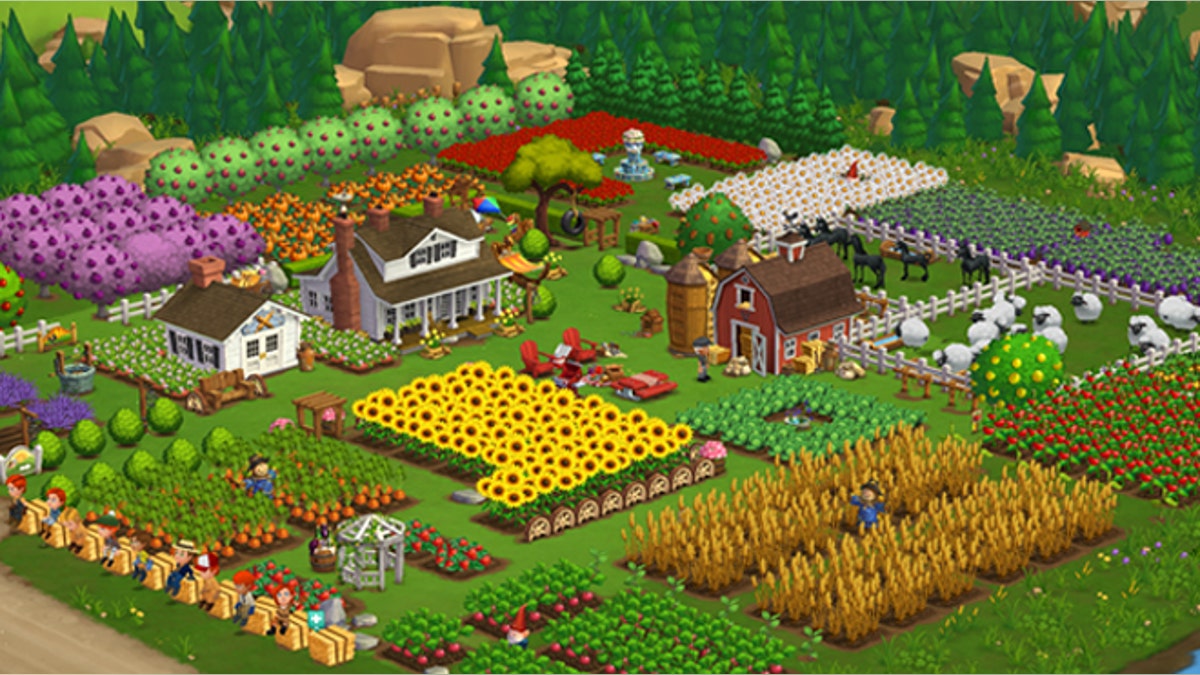
(Zynga)
Those annoying Facebook notes asking you to help harvest Grandma’s virtual turnips may be coming to an end -- and that might be a good thing.
Gaming developer Zynga, known for its immensely popular social network games such as FarmVille and Mafia Wars, recently laid off 18 percent of its workforce, or 520 workers -- another sign of decline for the once unstoppable Goliath of the casual gaming industry, according to Michael Fahey, social and mobile gaming editor for Kotaku.
“It was a greedy grab for as many nickles and dimes as possible, with seemingly no concern for the effect it would have on the market," Fahey told FoxNews.com. "Zynga has a reputation for it now.”
'The bigger the boat you build the harder it is to stay afloat. Zynga built the Titanic.'
Zynga led the explosion of a whole new genre within gaming over the past three years, titles aimed at casual players who don't normally describe themselves as gamers. The games skipped traditional systems like the Xbox and PlayStation, instead choosing platforms like Facebook, iOS and Android.
Zynga also innovated the “freemium” pricing model, where games are initially free to play, but quickly lead to built-in pay-walls. The company did not respond to FoxNews.com requests for comment.
- Smartphones shipments to surpass feature phones for first time in history
- Samsung and Jay-Z to sign $20 million deal connected to music streaming service, rumor says
- The Last of Us review: A bright moment in gaming, shining through a dark world
- Lara Croft over the years
- Is big data turning gov’t into ‘big brother’?
“At first it seemed like a fun way to interact with your friends,” Fahey said. “But soon players began to see the mechanic for what it is: a barrier to progression, a means of keeping you from getting further in a game unless you either pay a toll or take steps to ensure your social circle is as involved as you are.”
The model nevertheless lured millions with the free pricetag. But gamers were hooked, it pushed them to either spend money, or to get friends and family in to help them. The game therefore would do a lot of advertising for itself, through its addicted players. And it worked … at a price.
“The bigger the boat you build the harder it is to stay afloat,” Fahey said. “Zynga built the Titanic.”
The games were usually of low graphic quality, and based on fairly simplistic gaming mechanics. The result was that Zynga introduced people to games that had perhaps never touched a videogame since the Pac Man days of their youth, and were now being offered a bright, free game to play on Facebook or on their phones - games that could be played with distant friends.
The market soon became flooded by Zynga and other companies. And for every decent game like FarmVille, there were hundreds of bad games that were nothing but loops designed to exploit users out of their cash.
Eventually, when gamers saw a “free” game - especially a Zynga title - they associated it with poor-quality games that would push them for money at every turn. Additionally, it became a social faux pas in many circles to “invite” friends to play as users became irritated with requests spamming their Facebook accounts. As a result, Facebook soon implemented measures whereby it became easier to block such requests.
Yet while Zynga may be struggling, social freemium games are still on the market, and many companies continue to thrive. Games such as King’s “Candy Crush Saga” and Cygames’ “Rage of Bahamut” show the model to be a successful one when done properly, in a way that the gamer doesn’t feel exploited or scammed.
Zynga’s overreach has made developers more cautious and measured in their approach in what is now a more cynical atmosphere from customers. In April, Electronic Arts pulled three of their popular titles from Facebook, and Fahey believes that for many, Facebook gaming has lost its charm.
“There is a lot of mistrust now,” says Fahey. “When gamers see a free-to-play title, their first thought is, ‘How are they going to try and get my money?’”








































